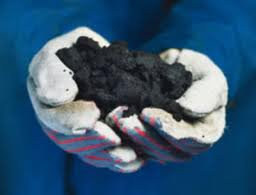sábado, 14 de abril de 2012
Canada faces environmentalists blocking in the market for its tar sands
A coalition of 30 organizations belonging to the self Climate Coalition has asked the European authorities to prevent the entry into the tar sands region, a new raw material to produce fuel.
The group, involving social and environmental organizations like Greenpeace, WWF, Intermon Oxfam and Action Natura, denounce the environmental and climate impact of this type of pitch or bitumen, which is extracted into open pit mining.
The tar sands, also known as bituminous sands, oil sands, are a combination of clay, sand, water and bitumen.
From tar sands bitumen is extracted like oil which is converted into a synthetic crude oil or refined directly by specialized refineries for petroleum products.
As in all mining and development projects of non-renewable resources, oil sands operations have an impact on the environment.
Much of the mining operations with tar sands involves the removal of trees and vegetation of a site and remove the “overload” – topsoil, sand, clay and gravel – that sits above the sand deposit bituminous. Approximately two tons needed oil sands to produce one barrel of oil (approx. 1/8 of a ton).
To produce each unit volume of synthetic crude oil is used between 2 and 4.5 units of volume of water. Despite recycling, almost all that water ends up in ponds contaminated .
“The oil produced from highly polluting sources like tar sands emit more greenhouse gases than conventional oil,” say the group in their letters , recalling that tar sands extraction in Canada “has destroyed areas natural and has had a devastating impact on local and indigenous communities. ”
The coalition stresses that the European directive on fuel quality (FQD ) was adopted in 2008 to reduce by 6% in 2020, the intensity of CO2 emissions in road transport sector and contribute to the decarbonization of the sector, the only greenhouse gases which continue to grow.
As a strategy adopted by the major oil companies tar sands of western Canada, such as BP, Shell and Total, formed an “alliance” to “improve” the environmental effects of this industry and his controversial image.
The Alliance for Innovation Canada’s oil sands (COSIA ), aims to improve collaboration among industry players by sharing environmental innovations concerning the extraction of this oil.
The oil sands in Alberta, western Canada, is the third largest black gold reserve , behind Saudi Arabia and Venezuela, with about 170,000 million barrels estimated.
U.S. refused to enter the game of the tar sands, and this winter, has dismissed the macro project of the pipeline for the importation of Canadian tar sands. The question is whether Europe is ready also to oppose, “the group note.
“If Europe wants to avoid the most serious risks of climate change can not ignore that it is essential to properly treat the carbon footprint of these fuels,” say the environmentalists.
By Lenin Cardozo / Mariana Jaramillo | ANCA24
Suscribirse a:
Comentarios de la entrada (Atom)










No hay comentarios.:
Publicar un comentario